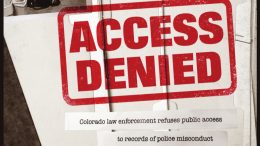Police monitor: Jail death of Michael Marshall shows need for guidelines on the release of video
The Denver Department of Public Safety, which includes the police and sheriff’s departments, should publish written guidelines for releasing video of critical incidents such as the 2015 death of jail inmate Michael Marshall, the city’s police monitor recommended this week.









